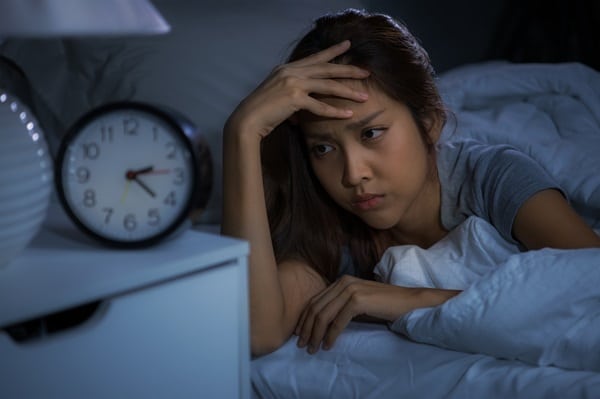Caffeine, a familiar stimulant, finds its way into daily routines worldwide, primarily through beloved beverages like coffee and tea. While it’s celebrated for its ability to kickstart mornings and fuel late-night endeavors, caffeine’s impact on health is a nuanced topic. This article delves into the complexities of caffeine consumption, exploring the fine line between beneficial and excessive intake. It aims to shed light on how much caffeine is too much, considering various factors like individual sensitivity and long-term health implications, providing a comprehensive guide for readers to understand and manage their caffeine habits effectively.
Contents
- 1 Caffeine: Nature, Sources, and Variability
- 2 The Benefits of Caffeine
- 3 The Symptoms of Excessive Caffeine Intake
- 4 Caffeine Sensitivity and Individual Differences
- 5 Daily Recommended Limits for Caffeine
- 6 The Long-Term Effects
- 7 Balancing Caffeine Intake for Optimal Health
- 8 When to Seek Medical Advice
- 9 Find Your Perfect Caffeine Balance
Caffeine: Nature, Sources, and Variability

Caffeine, a natural stimulant found in certain plants, plays a significant role in many people’s lives. It’s most commonly consumed through coffee, tea, energy drinks, and soft drinks, each offering varying levels of this compound. The caffeine content in these beverages can differ dramatically, with a single espresso shot containing about 63 mg of caffeine, while a cup of tea might have only 30 mg. This variability is crucial for consumers to understand, as it directly impacts their total daily intake. Knowing the caffeine content in different products is essential for managing consumption and avoiding excessive intake.
The sources of caffeine extend beyond just beverages. Foods like chocolate and certain medications also contain caffeine, though in smaller amounts. However, these sources can contribute significantly to the total daily caffeine intake, especially for individuals who consume multiple caffeine-containing products throughout the day. The cumulative effect of these various sources can sometimes go unnoticed, leading to unintentional overconsumption. Therefore, it’s important to consider all potential sources of caffeine in one’s diet to maintain a healthy balance. Awareness of these sources is the first step in managing caffeine intake responsibly.
The Benefits of Caffeine

Caffeine is renowned for its ability to enhance alertness and concentration, making it a popular choice for those needing a mental boost. Its stimulating effects on the brain can lead to improved mood and cognitive function, often resulting in increased productivity and focus. These benefits are primarily due to caffeine’s ability to block adenosine receptors in the brain, which promotes wakefulness. Additionally, moderate caffeine consumption has been linked to improved physical performance, making it a common component in pre-workout supplements.
Beyond its immediate effects, caffeine has been associated with several long-term health benefits. Studies suggest that regular, moderate caffeine intake can reduce the risk of certain diseases, including Parkinson’s disease, Alzheimer’s disease, and some forms of cancer. It’s also been linked to a lower risk of stroke and type 2 diabetes. These benefits are thought to arise from caffeine’s antioxidant properties and its ability to enhance brain function. However, it’s important to note that these positive effects are most pronounced with moderate consumption and can diminish or even reverse with higher doses.
The Symptoms of Excessive Caffeine Intake

Excessive caffeine intake can lead to a range of uncomfortable and potentially harmful symptoms. Common signs of caffeine overdose include jitteriness, insomnia, increased heart rate, and sometimes anxiety. These symptoms result from caffeine’s stimulating effects on the central nervous system and can vary in severity depending on the amount consumed and the individual’s sensitivity. It’s crucial to recognize these signs early, as they indicate that one’s caffeine intake may be crossing into unsafe territory.
Individual tolerance to caffeine can significantly influence how much is too much. Factors such as body weight, age, medication use, and genetic makeup can all affect how one’s body processes caffeine. Some people may experience adverse effects with relatively low amounts of caffeine, while others can tolerate higher doses without any noticeable symptoms. Understanding one’s personal tolerance is key to consuming caffeine safely. Paying attention to how one’s body reacts to different amounts of caffeine can help in identifying the right balance.
Caffeine Sensitivity and Individual Differences

Caffeine sensitivity varies widely among individuals and is influenced by genetic factors, age, and overall health. Genetics plays a crucial role in determining how quickly one metabolizes caffeine. Those with faster metabolism rates may find they can consume more caffeine without adverse effects, while others with slower rates may be more susceptible to its stimulatory impact. This genetic variability explains why caffeine affects people differently. Age and existing medical conditions also significantly influence caffeine sensitivity. For instance, older adults may metabolize caffeine more slowly, leading to increased sensitivity.
Certain health conditions, such as anxiety disorders or heart problems, can also make individuals more susceptible to the effects of caffeine. Pregnant women are advised to limit caffeine intake due to potential impacts on fetal development. Understanding these individual differences is vital for determining a safe level of caffeine consumption. It’s important for individuals to consider their unique circumstances and possibly consult healthcare professionals to tailor their caffeine intake accordingly.
Daily Recommended Limits for Caffeine

Health authorities typically set guidelines for safe caffeine consumption. For most adults, up to 400 milligrams of caffeine per day appears to be safe, roughly equivalent to four cups of brewed coffee. However, these recommendations can vary based on individual factors such as body weight and sensitivity to caffeine. It’s important to note that pregnant women, breastfeeding mothers, and children have different recommended limits due to the potential effects of caffeine on development and health. Adhering to these guidelines is crucial in preventing the adverse effects associated with excessive caffeine intake.
Despite general guidelines, it’s essential to consider personal health conditions and lifestyle. For instance, individuals with certain medical conditions, like heart disorders or anxiety, may need to consume much less caffeine. Similarly, those who are sensitive to caffeine’s effects might experience symptoms even with small amounts. It’s also worth noting that habitual caffeine consumption can lead to increased tolerance, meaning that regular consumers may not feel the effects as intensely as occasional users. Understanding and respecting one’s unique response to caffeine is key to maintaining a healthy balance.
The Long-Term Effects

Chronic high caffeine intake can have several long-term health implications. Regularly consuming large amounts of caffeine may lead to an increased risk of heart problems, such as hypertension and palpitations, due to its stimulating effect on the cardiovascular system. Additionally, high caffeine consumption has been linked to issues with bone density and calcium absorption, particularly in individuals who do not consume adequate calcium. There’s also the potential for caffeine to exacerbate anxiety and sleep disorders, impacting overall mental health and quality of life. These potential risks underscore the importance of moderating caffeine intake over the long term.
Studies have also explored the relationship between excessive caffeine consumption and certain health conditions. For example, there is evidence suggesting a link between high caffeine intake and an increased risk of fertility issues and pregnancy complications. Furthermore, habitual high consumption can lead to dependence, with withdrawal symptoms including headaches, fatigue, and irritability when caffeine is not consumed. It’s important for individuals to be aware of these risks and consider them when evaluating their caffeine habits. Moderation is key, and those concerned about their caffeine intake should consult healthcare professionals for personalized advice.
Balancing Caffeine Intake for Optimal Health

Managing caffeine intake effectively involves more than just monitoring the amount consumed. It’s about understanding the timing of consumption and its impact on the body. For instance, consuming caffeine late in the day can disrupt sleep patterns, so it’s advisable to avoid caffeine several hours before bedtime. Additionally, alternating caffeinated beverages with water or herbal teas can help maintain hydration and reduce total caffeine intake. Keeping a caffeine diary can also be beneficial in tracking and moderating consumption.
For those looking to reduce their caffeine intake, gradual reduction is often more effective than abrupt cessation. This approach can help minimize withdrawal symptoms like headaches and lethargy. Exploring caffeine-free alternatives, such as herbal teas or decaffeinated coffee, can also provide a satisfying substitute without the stimulating effects. It’s also beneficial to focus on improving overall lifestyle habits, such as getting adequate sleep and managing stress, which can reduce the reliance on caffeine for energy and alertness. Balancing caffeine intake with a healthy lifestyle is crucial for long-term well-being.
When to Seek Medical Advice

Knowing when to seek medical advice regarding caffeine intake is essential for maintaining health. If experiencing symptoms like persistent insomnia, palpitations, or anxiety that seem linked to caffeine consumption, consulting a healthcare professional is advisable. This is especially important for individuals with pre-existing health conditions that may be exacerbated by caffeine. Healthcare professionals can provide personalized advice and help in developing a plan to manage or reduce caffeine intake safely.
It’s also important to be aware of the signs of caffeine dependency and withdrawal. If you are finding it difficult to function without caffeine or experience withdrawal symptoms regularly, it may be time to evaluate your caffeine habits. Symptoms like severe headaches, irritability, and extreme fatigue when not consuming caffeine are indicators that professional guidance might be needed. A healthcare provider can assist in creating a strategy to reduce dependence and suggest healthier alternatives to maintain energy levels. Recognizing and addressing caffeine-related issues is a proactive step towards better health.
Find Your Perfect Caffeine Balance
Understanding and managing caffeine intake is crucial for maintaining optimal health. This article has highlighted the importance of recognizing personal limits, the benefits of moderate consumption, and the risks associated with excessive intake. It’s essential to listen to your body and adjust your habits accordingly. Consider keeping a caffeine diary, exploring healthier alternatives, and consulting healthcare professionals if necessary. Take charge of your caffeine consumption today for a healthier, more balanced lifestyle.


